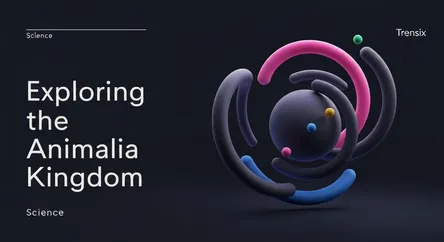Science
Exploring the Animalia Kingdom

Dive into Animalia, the vast biological kingdom of all animals. Explore the diversity, classification, and importance of these incredible life forms.
What is it?
Kingdom Animalia is one of the major classifications of life, encompassing all animals. These organisms are multicellular and eukaryotic, meaning their cells contain a nucleus. Unlike plants, animals are heterotrophic, obtaining energy by consuming other organisms. Most animals are motile at some stage of their lives and possess specialized sensory organs and nervous systems that allow them to respond to their environment. This vast kingdom is further divided into numerous phyla, ranging from simple sponges to complex vertebrates like mammals, birds, and reptiles. Humans, as Homo sapiens, are also part of this incredibly diverse group.
Why is it trending?
The study of Animalia remains a dynamic field, consistently making headlines with new discoveries and conservation debates. Scientists are constantly identifying new species, while genetic analysis reshapes our understanding of the animal tree of life. Furthermore, heightened global awareness of climate change and biodiversity loss keeps topics like animal endangerment and conservation efforts in the public consciousness. Documentaries and media frequently highlight the wonders of the animal kingdom, sparking public curiosity and discussion about its complexity and fragility, making it a perennially relevant topic.
How does it affect people?
The Animalia kingdom is inextricably linked to human existence. As members of this kingdom, our biology is a subject of its study. Animals are crucial to global ecosystems, providing services like pollination and pest control, and are a primary source of food for billions. Beyond practical uses, animals play significant roles in scientific and medical research, leading to life-saving discoveries. They also offer companionship as pets and hold deep cultural and spiritual significance. The health of the animal kingdom directly reflects the health of the planet, impacting human well-being and survival.